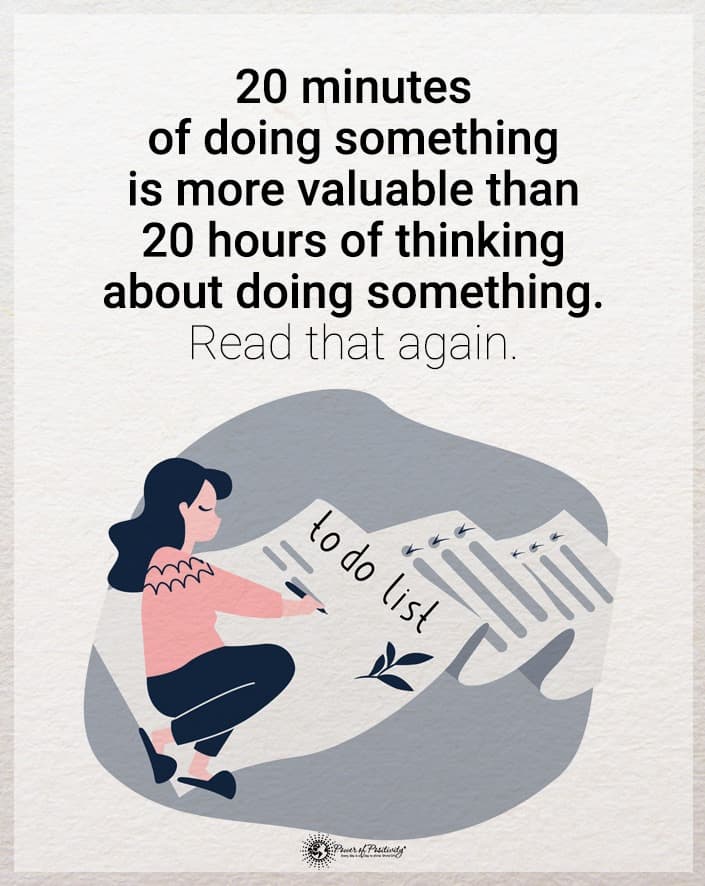Today’s society puts a strong emphasis on multitasking and doubling your assignments to get things done. If you’re one to put things off, it can make your workload heavier and heighten your stress level. How can you break this procrastination cycle and learn how to balance work and pleasure?
Benjamin Franklin advised that you should never put off until tomorrow the things you can do today. It’s excellent advice, but it can sometimes be challenging to follow. You may have been stuck in a procrastination rut for years, no matter how hard you try.
An article published by The New York Times explains that the word “procrastination” derives from Latin words meaning to “put things off until tomorrow.” Even some Ancient Romans were tempted to skip a few tasks that could wait.
The article further states that it’s not a character flaw, but it’s more of a way to cope and handle stressful situations. You must be realistic about how much you can do in a day, and if you pile on too many things, then you become overwhelmed.
Work quality will be sacrificed if you try to cram too many tasks into a short period. Often you may have an overwhelming schedule because you keep putting things off.
Ten Habits to Help Break the Harmful Procrastination Cycle
Nobody starts procrastinating out of nowhere. In fact, it’s a vicious vortex that begins in childhood. Here are ten habits to help you break that destructive procrastination cycle today.
1. Realize Procrastination is Normal and Stop Beating Yourself Up
Along with the doubled-up hassle of putting things off is the guilt and self-loathing. When you’re cramming for yet another deadline, you get so frustrated with yourself. Still, you can always find excuses for why you should wait until tomorrow to get things done.
The first step toward changing your habits is acknowledging them and giving yourself a break. In an article published by Psychology Today, Dr. Susan K. Whitbourne states that approximately 20 percent of adults procrastinate. Be self-compassionate and realize that you’re now doing something about the issue.
2. Discover The Reasons Behind This Behavior
Have you ever pondered what started your procrastination? What are the reasons behind this aggravating habit? You’ll be happy to know that it isn’t just laziness on your part, as it may have a more profound psychological link.
In an interview published by the American Psychological Association, Dr. Joseph Ferrari discusses possible psychological issues behind procrastination. He states that issues like passive-aggression, ADHD, obsessive-compulsive disorder, and even revenge may be an impetus. These are personality disorders that many people develop early in life.
Some honest introspection can help you discover why you procrastinate. Do you put off doing specific tasks because they are emotional triggers? Do fear and perfectionism hold you back from what you need to accomplish?
3. Use the Pomodoro Technique
What does a tomato have to do with learning how to break your procrastination cycle? Remember those cute little kitchen timers shaped like a tomato that your mother or grandmother had? You may even have a vintage one sitting on your kitchen counter.
It became the inspiration for the Pomodoro Technique, using the Italian word Pomodoro for tomato. According to an article published by the National Library of Medicine, Dr. Amrita Mandal says Francesco Cirillo developed the technique in the 80s. He named his innovative idea after the iconic timer he used as an Italian university student.
The Pomodoro Technique has become a globally popular tool to overcome procrastination. Its effective time management means that’s easy to implement in your home or office. Here are the basics, according to the article:
- Choose a task
- Set your timer to 25 minutes
- Focus on working until the timer rings
- Take a five-minute break and do what you want
- Continue these work/rest intervals to complete your day’s duties
- For every four tasks that you complete, you’ll extend your breaks from fifteen to thirty minutes
4. Implement Deadlines to Make Yourself Accountable
Whether it’s for school, work, or home, everybody has deadlines. The consequences may be severe when you miss one. You could face overdue bills, possible job loss, or failing grades. Unfortunately, many people wait until the last minute to complete a task when it’s due.
If deadlines are your Achilles’ tendon and you’re prone to procrastination, be proactive. Break the task into smaller tasks and give each one a time frame. When you meet the deadline of each more minor assignment, you’ll finish on time.
5. Set Up a Rewards System
Of course, a job well done is its incentive. But until you finish the task, the reward may seem far from reach. Another way to halt the procrastination cycle is to devise an incentive system during the process and afterward. It can give you a positive mindset to get your tasks done.
For example, say you’ve been procrastinating weight loss. You keep saying that you’ll start on Monday, but Monday never comes. Maybe it’s because the results are too far away for you to perceive the rewards.
Instead, break your big goal into smaller goals and reward yourself for each step. Say you treat yourself to a movie or a weekend away for every 10 pounds you lose. The rewards will be immediately enjoyed, and you’ll soon have the big bonus of a new wardrobe and a new you.

6. Work on Enhancing Your Focus
Focusing on the task at hand doesn’t come naturally to everyone. Mental issues like ADHD or anxiety disorders can keep your mind in chaos. You try to finish a job, get distracted, and end up in a procrastination cycle.
It takes practice to enhance your focus. Try to minimize distractions around your workspace. Identify things that rob your direction, such as constantly checking email or social media.
If noise distracts you, consider wearing earphones while you’re working. Put your emails and social media on hold and check them only on a break. Meditation and visualization are excellent tools for boosting your focus.
7. Practice the Two-minute Rule
Another valuable tool for effective time management is the two-minute rule. You jump right into the task and do part of it for at least two minutes. Those couple of minutes may be all you need to get past the avoidance.
For example, do you hate to tackle your inbox at work? Try the two-minute rule instead of putting the task off until things are late. Take a deep breath and immediately begin sorting your paperwork.
You may see that it’s not that bad, and you continue to work for another few minutes. The goal is to get used to doing the task at hand instead of avoiding it. You might be surprised that you can get these dreaded tasks done in a timelier fashion.
8. Use Chunking to Manage Your Expectations
Remember the example of using smaller goals for weight loss? The concept of dividing tasks into smaller ones is called chunking. It can be used for your smallest chores to achieve your life’s dreams.
It follows the mantra of “one day at a time.” However, you can break that down further into one hour or even a few minutes at a time. The most significant tasks aren’t so overwhelming when taken step by step.
Have you dreamed about a vacation to Europe? Why not create a vision board that lists each step necessary to go, such as creating a budget? Decide a date and write down each smaller goal you need to accomplish before your dream get-away.
9. Uncover Your Triggers
One of the components of the procrastination cycle is emotional triggers and avoidance. Perhaps an incident in your past brings up unpleasant emotions, so you avoid specific tasks. Your only way to break the cycle is to identify your triggers and learn how to deal with them.
Let’s say you’ve put off visiting family for the holidays because you can’t deal with a toxic family member. Or maybe you procrastinate talking to your boss about a raise because you fear rejection. Putting these essential things off is only keeping you a hostage of your past.
Refuse to allow a toxic person or past hurts to stand in your way of joy and fulfillment. The worst thing you can procrastinate is joy. When you learn to identify and get past your emotional triggers, you’re more apt to delay tasks.
10. Make Your To-Do List More Manageable
One of the hallmarks of an organized person is the to-do list. It can be a little scribbled note or an elaborate spreadsheet or calendar. These lists help keep you focused and minimize your chances of forgetting something important.
Take an honest look at your to-do list and ask yourself if it’s realistic. Have you piled so much on your plate that you can’t get anything done? Maybe your planning needs to be tweaked by chunking and prioritization.
Making your list more reasonable allows you to get more done. You’ll be less likely to procrastinate, and you’ll have a feeling of accomplishment. Don’t forget to make time for yourself and your family and friends.

Final Thoughts on Habits to Help Break the Harmful Procrastination Cycle
Managing your time can be easier when you learn to prioritize, focus, and complete each task. Use these and other helpful hacks and determine to break the procrastination cycle for good, and you can have a sense of accomplishment about getting things done. There’s no better time than the present to start.
The post These 10 Habits Can Help You Stop Procrastination appeared first on Power of Positivity: Positive Thinking & Attitude.



